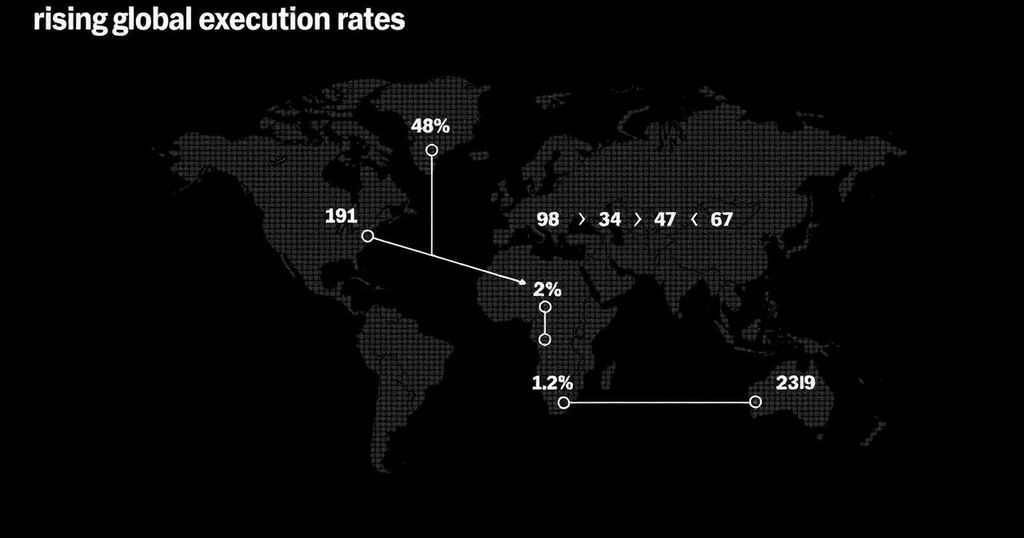In 2022, global executions surged by 53%, with Iran and Saudi Arabia seeing the most notable increases. Amnesty International stated that 883 individuals were executed worldwide, and Indonesia faced criticism for its new death sentences, particularly for drug-related crimes. Despite these alarming figures, 112 countries have abolished the death penalty, showcasing a complex landscape of capital punishment practices around the world.
According to the annual report released by Amnesty International, executions worldwide soared by 53% in 2022 compared to the previous year, with notable surges in Iran and Saudi Arabia. The report highlights that Iran executed 576 people in 2022, marking an 83% increase from 314 executions in 2021, while Saudi Arabia’s execution numbers tripled from 65 to 196. In total, 20 countries are reported to have executed 883 individuals, a significant rise from the 579 executions documented in 2021. The report criticized Indonesia for having one of the highest counts of new death sentences in Asia, with 94% of the 112 new death sentences being related to drug offenses. The report also points out that several nations, including China, North Korea, and Vietnam, maintain secrecy around their death penalty practices, complicating any accurate assessment. Countries in the Asia-Pacific region recorded the highest rates of new death sentences, with Bangladesh, India, and Pakistan following Indonesia. Amnesty International asserted that among those incarcerated on death row in Indonesia, drug traffickers comprise a significant portion. Furthermore, it noted a worrying trend as at least 325 executions were conducted for drug-related offenses in China, Iran, Saudi Arabia, and Singapore collectively. Despite the grim statistics, Amnesty International noted that 112 nations had abolished the death penalty by the end of the year, including Indonesia’s neighboring country, Papua New Guinea.
The topic of the death penalty and its application is a contentious and significant issue in international human rights discourse. Amnesty International, an organization committed to fighting injustice, has documented and analyzed the trend of executions globally. Their reports shed light on the states that utilize capital punishment, the reasons for executions, and the implications on human rights and legal standards. In 2022, the notable increase in executions particularly in the Middle East, especially in Iran and Saudi Arabia, raises concerns about human rights practices in these nations. The legal definitions surrounding what constitutes ‘most serious crimes’ and the categorization of offenses such as drug-related crimes further complicate the understanding of the death penalty’s application.
In conclusion, the significant rise in executions worldwide in 2022 underscores a troubling trend in capital punishment practices, particularly in Iran and Saudi Arabia. With Indonesia noted for its high rate of new death sentences primarily related to non-fatal drug offenses, the global landscape of capital punishment remains dire. Despite moves towards abolition in some parts of the world, the increase in executions and lack of transparency in many nations, exemplified by China and North Korea, highlight ongoing challenges in human rights advocacy against the death penalty.
Original Source: www.pbs.org







